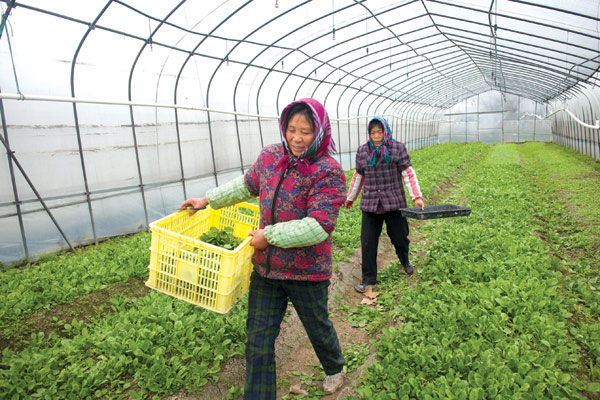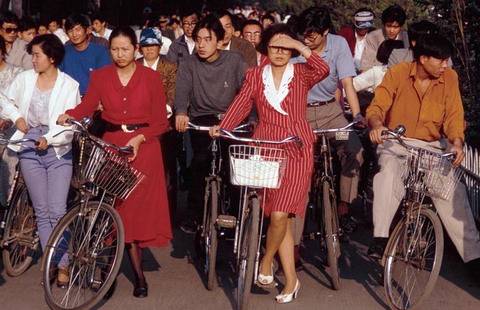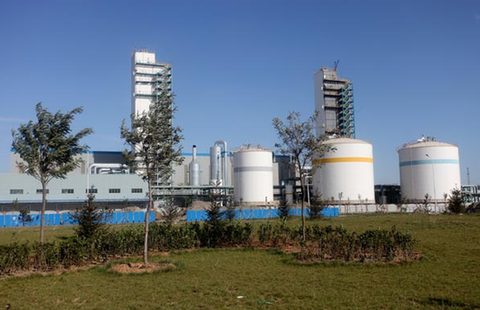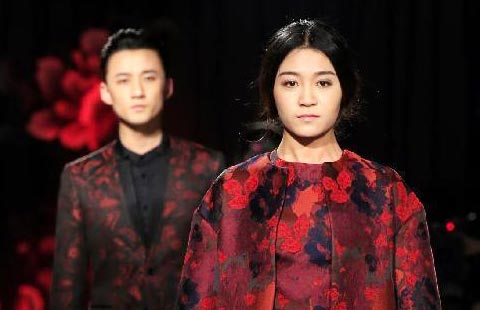Heiress harmonizes hot pot with organic farming
Updated: 2015-03-27 11:38
By Xu Junqian in Shanghai(China Daily USA)
|
||||||||
 |
|
From farmland to table, Stephanie Ho creates a complete supply chain for her restaurants to guarantee the integrity of their food. [Photo by Gao Erqiang / China Daily] |
Wealthy heiress Stephanie Ho may be something of a fashionista in her spare time, but these days she prefers discussing culinary matters in her role as the founder of two organic-restaurant brands, Green & Safe and Qimin Hotpot.
"Organic food is seen in China as a luxury for the rich and a comfort for those in poor health. I want to change that to make it more affordable and more widely available," said the 37-year-old, whose family owns Yuen Foong Yu group, Taiwan's largest paper-manufacturing conglomerate.
 |
|
Stephanie Ho, the founder of organic restaurants in Shanghai and Taiwan |
"People are slowly getting more familiar with organic food, but I'm not sure if it's getting that popular yet," added Ho, who was elegantly attired in a short-sleeved tweed dress by Chanel and black stilettos by Gianvito Rossi.
She recently launched the second branch of Qimin in Shanghai, where shelves full of homemade soy sauce separate the main dining area from private cubicles. Together with Green & Safe, a more Western-style restaurant, the two promise to use only natural ingredients untainted by chemicals, pesticides or MSG.
The restaurants are supplied by her organic farm in Kunshan, Jiangsu province, which covers more than 33 hectares. It is about an hour outside Shanghai and close to the mainland headquarters of Ho's family business. By cutting out middlemen and growing her own ingredients, she has attracted a devoted following among Shanghai's expat community and health-conscious locals.
Her interest in food goes far beyond her own farm. While her socialite friends in Taiwan busy themselves in the front rows of fashion shows and department stores, she takes great delight learning about all the latest food trends from exhibitions and expositions around the world.
Broccolini, a specially grown hybrid of broccoli and kai-lan (Chinese kale), is one trendy new 'superfood' Ho is trying to promote. Meanwhile, pomegranate seed oil is the new olive oil, she said. And spices from the Middle East are leading the exotic movement in the culinary world, she added.
In an era of processed food, pollution and food safety scares, more people in Shanghai and other parts of China are now growing their own food. It is not uncommon to hear tales of well-paid white collars leaving the city to go home, farm the land and reconnect with their roots.
- 'Behind-the-scenes' visit at Paris Zoological Park
- Migrants risk lives crossing into Europe
- US denies visa to young man for transplant
- Germanwings' co-pilot 100 percent fit to fly: Lufthansa CEO
- Germanwings' co-pilot 100 percent fit to fly: Lufthansa CEO
- Voice recordings show one pilot locked out cockpit

 Walking tall
Walking tall
 Press photo competition winners announced
Press photo competition winners announced
 Strange but true: Gator takes a stroll on Florida golf course
Strange but true: Gator takes a stroll on Florida golf course
 Top 9 hot-selling foreign products for Chinese babies
Top 9 hot-selling foreign products for Chinese babies
 French photographer captures Beijing in the '80s
French photographer captures Beijing in the '80s
 Top 10 steel producers in China
Top 10 steel producers in China
 Highlights of China Fashion Week
Highlights of China Fashion Week Cockpit mystery emerges
Cockpit mystery emerges
Most Viewed
Editor's Picks

|

|

|

|

|

|
Today's Top News
'Made in China' to 'Made in USA'
Motive examined after 'deliberate crash'
Tornadoes kill one in Oklahoma
Kissinger: US, China should seize chances to cooperate
'Sky Net' tracks fugitive officials
Apple Pay would face battle in China: Analysts
Michigan firm gets $1 billion Chinese contract
Teen's DNA project nets student Intel science award
US Weekly

|

|






